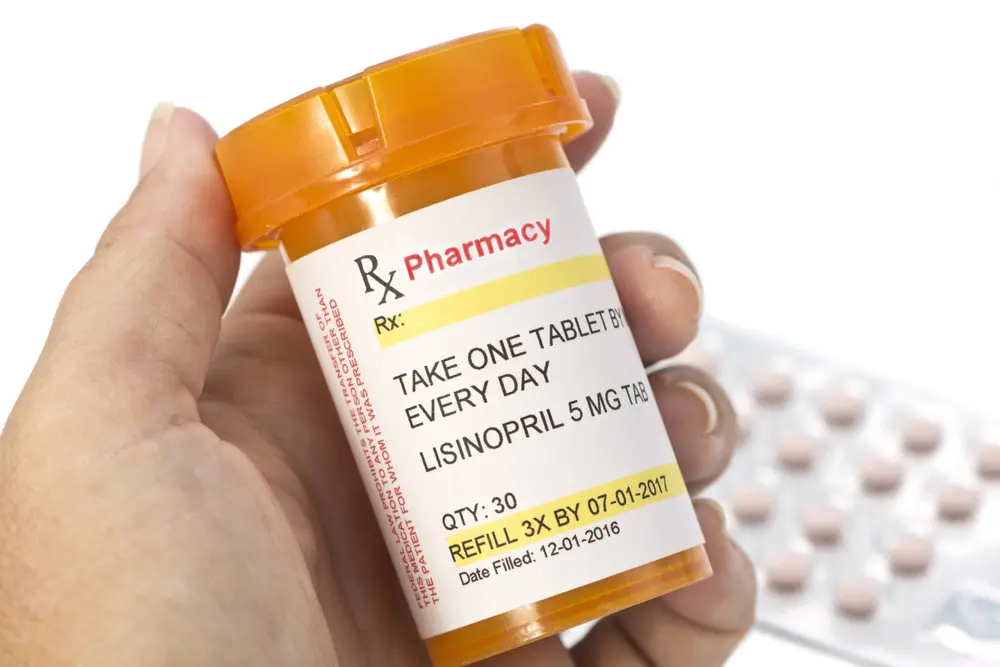How Long Does Lisinopril Stay in Your System?

Doctors prescribe lisinopril to lower blood pressure, reduce the risk of heart attacks, and help with heart disease symptoms. Although this drug doesn’t offer the euphoria most people crave with recreational drugs, it still has the potential for abuse.
Linsinopril has a half-life of about 12 hours, meaning it takes this amount of time for half the drug to leave your system. However, it takes up to six half-life cycles for the drug to be completely eliminated, so lisinopril could be detected for three to four days after last use.
The exact time lisinopril stays in your system depends on different factors such as age, weight, metabolism, history of drug use, and the type of drug test used for detection.
How Long Does Lisinopril Stay in Your Urine?
Most drug tests do not look for medications like lisinopril. But recently, researchers developed a screening test to look for heart pressure medication in urine. These tests help doctors tell if patients have been taking their medications.
Heart pressure medication like lisinopril is detectable in a urine test for up to three days. However, the results are not the same for everyone.
If you are well hydrated or have very acidic urine, you are more likely to test negative. On the flip side, if you are dehydrated and have low acid levels, you may be more likely to test positive for a longer amount of time.
How Long Does Lisinopril Stay in Your Blood?
Although an uncommon drug testing method, lisinopril may show in your blood for about three days.
How Long Does Lisinopril Stay in Your Saliva?
Researchers have not looked at how long lisinopril shows up in your saliva. But in most cases, saliva screening results are about the same as blood screening results, so you should expect to see lisinopril in your saliva for about three days. The results vary based on the type of drug and how it was taken.
How Long Does Lisinopril Stay in Your Hair?
Hair tests show positive results for most drugs for longer time periods than urine, blood, or saliva tests. Your hair keeps a record of the drugs you took within the last few months. As a result, lisinopril may show up in a hair drug test for 90 days after the last time taken.
A hair test doesn’t show exactly when you last took this drug, but it can indicate the frequency of use. If you take heart pressure medication on a regular basis, that is usually detectable with these drug tests.
How Long Does Lisinopril Stay in Lab Tests?
A long list of factors can affect the results of a lab test for drugs, including Lisinopril. Whether you’re screening urine, hair, blood, or saliva, the following elements may affect lab test results:
- Genetics — A variety of genetic factors can speed up or slow down how your body processes drugs.
- Age — As you get older, your body tends to process drugs more slowly, but at the same time, children take longer to eliminate drugs from their system.
- Weight — If you’re overweight, drugs may linger in your fat cells, causing you to test positive for a longer duration of time.
- Metabolism — A fast metabolism eliminates drugs from your system faster than average.
- Frequency of Use — If you use a drug regularly, it tends to be detectable in drug tests for longer amounts of time.
If you are having difficulties following your doctor’s orders about how to use this medication, you are not alone, and help is available.
To learn more about your options, contact Spring Hill Recovery today to get treatment for prescription drug abuse. With the right resources, you can get help. You can move past drug abuse, and live a rich, joyful, and content life without drugs or alcohol.


